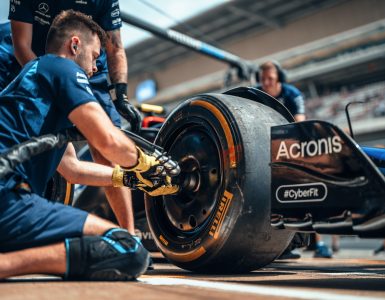In its increasing drive to become a greener sport, Formula 1® has pledged an ambitious sustainability plan to achieve a net-zero carbon footprint by 2030.
According to the official F1 press release, ‘the plan comes after twelve months of intense work with the FIA, sustainability experts, Formula 1 teams, promoters, and partners, resulting in an ambitious, yet achievable delivery plan. Carbon reduction projects will begin immediately to start the journey of becoming a more sustainable sport.’
The drive towards increasing energy efficiency is not exclusive to the racetrack, with ‘100% renewably powered offices, facilities and factories’ aimed at making all events sustainable by 2025. The use of sustainable materials at all events is also high on the agenda, ‘with single-use plastics being eliminated and all waste reused, recycled or composted’.
“Over its 70-year history, F1 has pioneered numerous technologies and innovations that have positively contributed to society and helped to combat carbon emissions. From ground-breaking aerodynamics to improved brake designs, the progress led by F1 teams has benefitted hundreds of millions of cars on the road today,” said Chase Carey, Chairman, and CEO of Formula 1.
“Few people know that the current F1 hybrid power unit is the most efficient in the world, delivering more power using less fuel, and hence CO2, than any other car. We believe F1 can continue to be a leader for the auto industry and work with the energy and automotive sector to deliver the world’s first net zero carbon hybrid internal combustion engine that hugely reduces carbon emissions around the world.
“In launching F1’s first-ever sustainability strategy, we recognise the critical role that all organisations must play in tackling this global issue. By leveraging the immense talent, passion and drive for innovation held by all members of the F1 community, we hope to make a significant positive impact on the environment and communities in which we operate. The actions we are putting in place from today will reduce our carbon footprint and ensure we are net zero carbon by 2030.”
The initial drive towards creating more energy efficient power trains began in 2014 in the first year of the V6 turbo hybrid power units, which will continue to play a key role in the future of the automotive industry.
“Our commitment to global environmental protection is crucial,” added Jean Todt, President of the Fédération Internationale de l’Automobile (FIA). “The FIA welcomes this Formula 1 initiative. It is not only very encouraging for the future of motorsport, but it could also have strong benefits for society as a whole. This strategy is in line with initiatives started some years ago by the FIA with the creation of the Environmental Accreditation Programme, more recently with the FIA Environment and Sustainability Commission, and researches on renewable racing fuel. Furthermore, in 2014 we introduced the hybrid power unit in Formula 1, which was essential for the development of motorsport highest category.
“It is the same reason that led us to maintain this philosophy within the framework of the Formula 1 regulations applicable from 2021. With the involvement of the teams, drivers, F1’s numerous stakeholders, and crucially the millions of fans around the world, the FIA and Formula 1 are committed to driving development and ensuring motorsport grows as a laboratory for environmentally beneficial innovations.”




